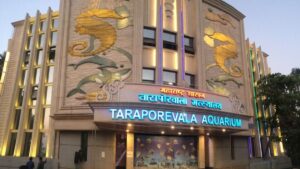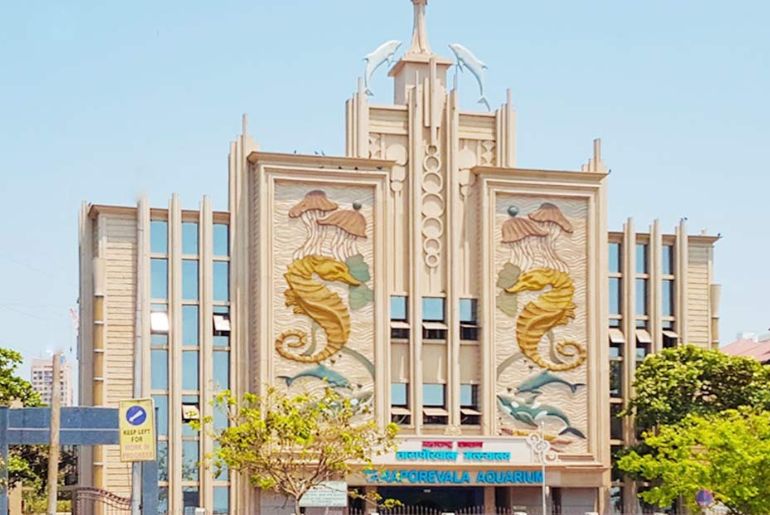Iconic Taraporewala Aquarium in Mumbai to Make Way for New ‘World-Class’ Facility
Mumbai’s renowned Taraporewala aquarium, an iconic tourist attraction and one of India’s oldest aquariums, is set for demolition due to its deteriorating condition, as revealed by a structural audit conducted by the Public Works Department (PWD). After bidding farewell to the 72-year-old landmark structure, the state department of fisheries plans to replace it with a cutting-edge ‘world-class aquarium.’
Dr. Atul Patne, Commissioner of the Maharashtra department of fisheries, explained that the aging building had significantly weakened, partly due to the impact of the ongoing coastal road project. He stated, “The PWD report revealed that the aquarium was dilapidated. Hence, we will dismantle the structure and establish a new state-of-the-art aquarium in its place.”
“The proximity to the sea and the coastal road project have both contributed to the corrosion of the old-age structure. While repair is possible, it would require frequent maintenance due to the ongoing coastal road project work. Given its popularity among visitors, we have opted to dismantle the structure,” added Patne.

The Aquarium has been Closed Since The Outbreak of Covid-19 in 2020
Although the aquarium has been closed to the public since the outbreak of Covid-19 in 2020, the state department of fisheries, previously operating from Taraporewala, was relocated to Nariman Point between July and August this year following the PWD’s report. The fish from the aquarium have been distributed across three public aquariums in Pune, Chandrapur, and Ahmedabad.
According to data obtained, 95 fish were transported to Pune, 173 to Ahmedabad, and 257 to Chandrapur in intermediate bulk container (IBC) tanks. A senior official, speaking anonymously, explained the transportation process, stating that the fish were placed in IBC tanks filled with water up to 60 percent capacity to allow them to swim comfortably.
The Fish were Not Fed
Before the transfer, the fish were not fed for at least two days to prevent fecal contamination and raise ammonia levels in the water. They were acclimatized to the new water conditions before transportation, and battery-operated aerators were used to ensure adequate oxygen supply.
The Taraporewala aquarium, established in 1951 with a budget of Rs 8,00,000, was named after Parsi philanthropist D B Taraporewala. In its prime, the aquarium served as a hub for renowned marine scientists in India. However, marine experts noted that the aquarium had been in a state of disrepair even before the coastal road project began.
The Aquariums have Various Problems
Shaunak Modi, director of the Coastal Conservation Foundation, emphasized the importance of the institution and its potential as an educational tool. He noted that the aquarium had various issues, such as random fish placement in the same tank.
To pave the way for the new aquarium, a tender for appointing a contractor for its design is set to be released soon, according to Patne. Modi stressed the need for the new aquarium to not only serve as a spectacle but also as an educational resource for the public.

